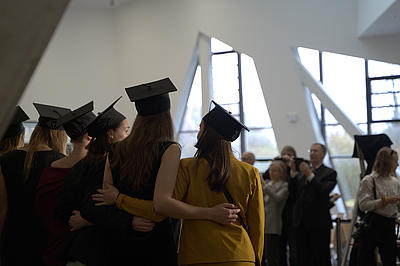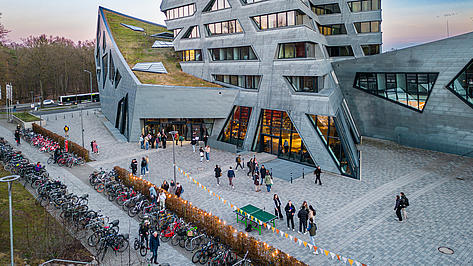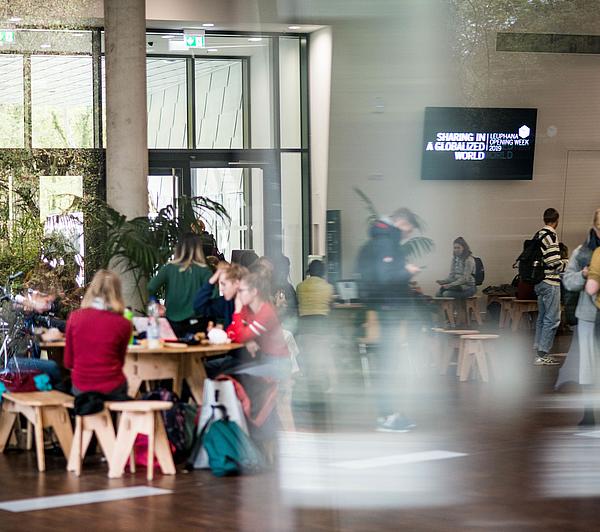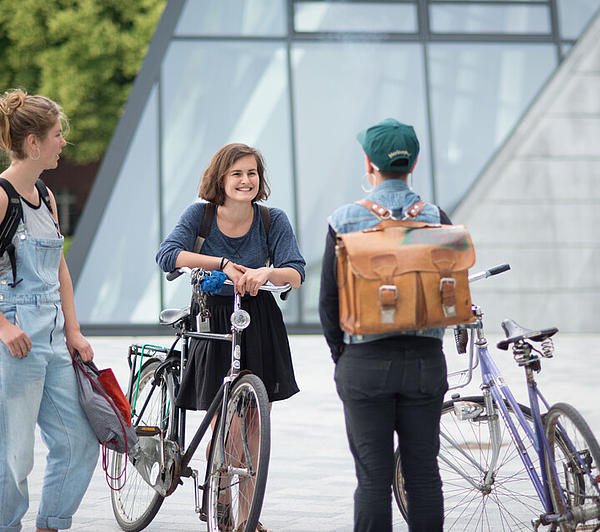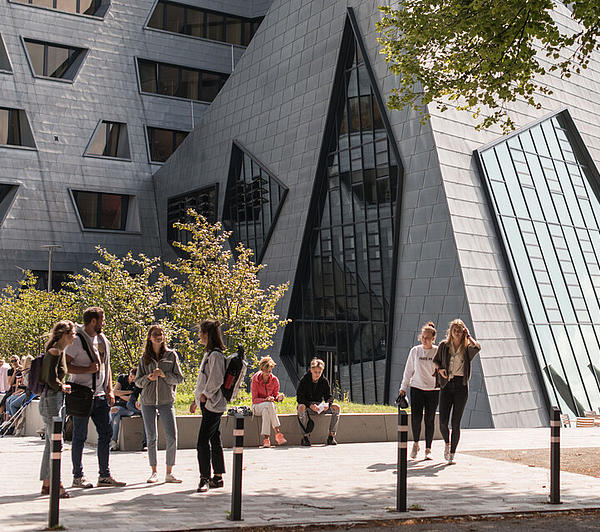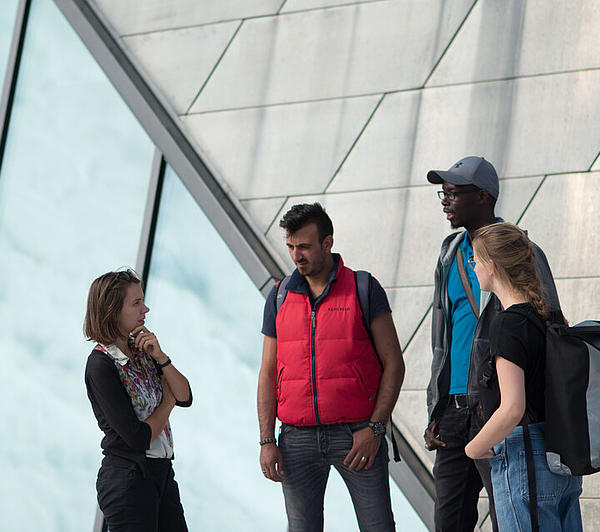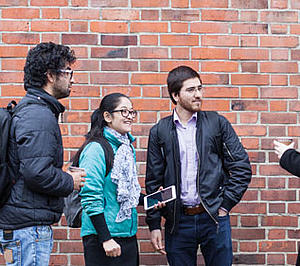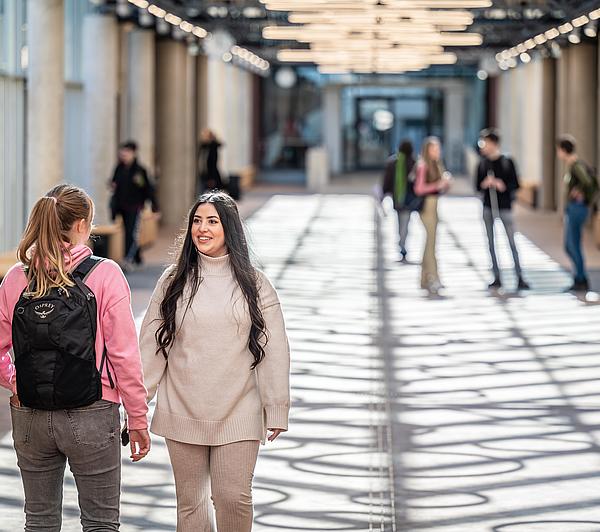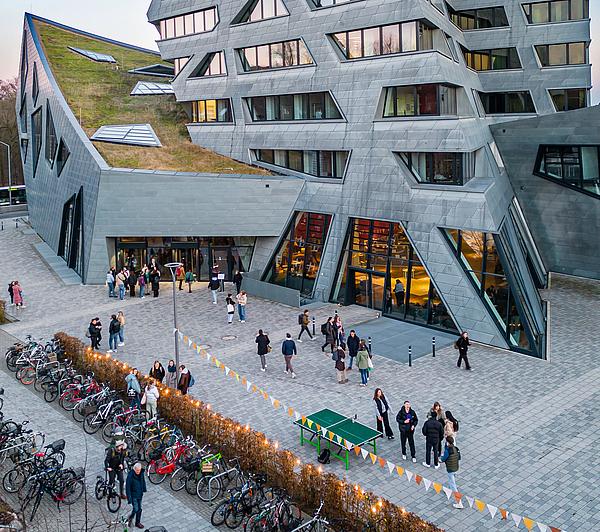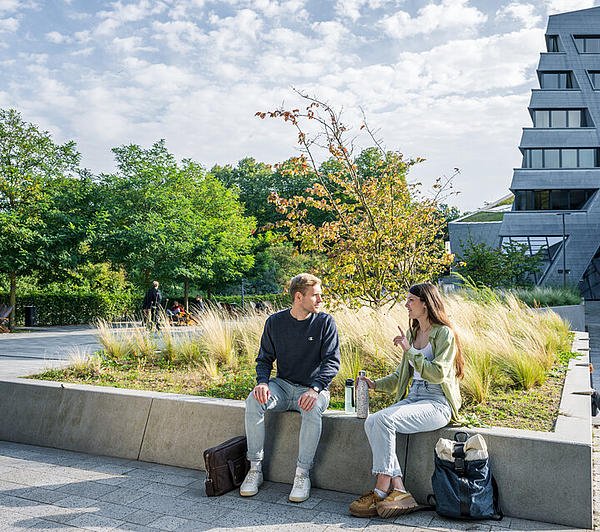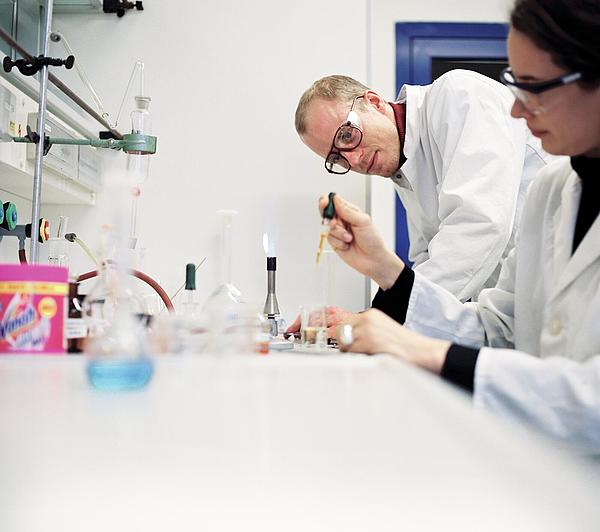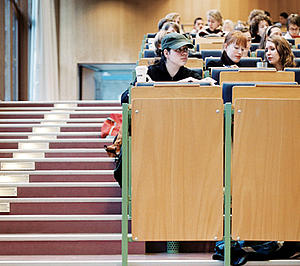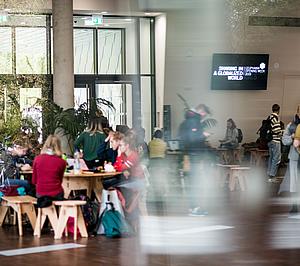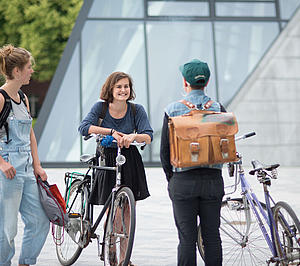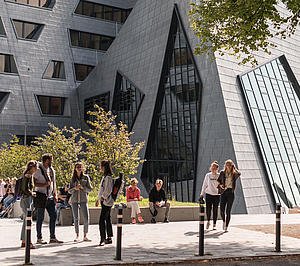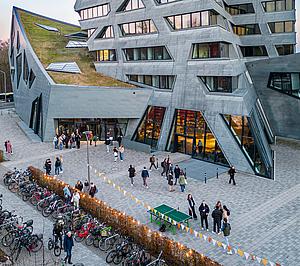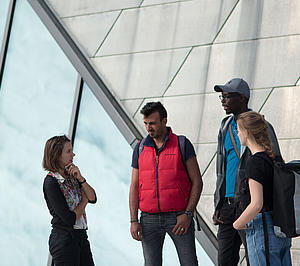Why study Cultural Studies at Leuphana College?
Are you interested in the world of art and culture? Do you want to understand how art and culture are linked to social change? Are you curious about the impact of digital platforms, social media, ecological changes, sustainable practices, urban development, migration and new forms of cultural participation on art and cultural organizations?
If so, the international study program "Cultural Studies: Organization, Society, and the Arts" might be of interest to you. This program combines traditional and modern cultural theory to examine current challenges and changes in cultural life and production. The concentration "Cultural Studies: Organization, Society, and the Arts" prepares you for a career in the global arts, media, and culture sector or paves the way for an academic
career.
At Leuphana University, you will not only acquire specialist knowledge, but also interdisciplinary skills that will prepare you for international debates and developments in cultural production. The program offers you various career opportunities, and you have the chance to set your own focus by choosing a minor subject and qualify for different professional fields, such as cultural management or artistic direction.
General information
Final degree: Bachelor of Arts
Extent: 180 CP according to ECTS
Standard course length: 6 semesters
Beginning of the course: October of each year (winter semester)
Teaching and assessment language of the main subject: English
Tuition fees: None
Semester contribution: approx. EUR 320
Admission restriction: yes
What is the structure of the Bachelor program in Cultural Studies?
Our Cultural Studies program at Leuphana University provides comprehensive training in various skills. You'll learn to analyze cultural phenomena, exploring the dynamic connections between culture, art, and society with both theoretical depth and empirical support. This approach fosters practical and creative insights, particularly in cultural organization, management, entrepreneurship, and diverse modes of cultural production.
The program emphasizes empirical research skills, enabling you to translate theoretical understandings into independent projects. You'll delve into specialist knowledge areas like cultural sociology, social theory, art theory, organizational sociology, and cultural business studies within an interdisciplinary framework.
Taught in English, the program opens doors to global art networks, cultural industries, and international research arenas. It also hones your academic and professional English language proficiency.
For personal development, we offer interdisciplinary skill-building, including reflective thinking, project management, empirical research, interdisciplinary collaboration, and teamwork. You'll complement your Cultural Studies major with a minor in fields like Philosophy, Popular Music Studies, Psychology and Society, or Economics, adding depth or breadth to your expertise.
In addition to your major and minor, you'll engage in Complementary Studies, which allow you to explore other disciplines and enhance your interdisciplinary abilities. For instance, you might study biodiversity and sustainable development or gain hands-on project management experience by organizing a music festival.
Study focus
- The Arts: The program offers an in-depth examination of the arts themselves. Students learn not only how art and culture are produced, but also what role they play in the production of a global discourse.
- Organization: The focus on cultural organization and society enables students to understand the organizational conditions of cultural production. Students acquire knowledge of how cultural institutions function and how they fit into social structures. This area specifically prepares students for a career in cultural organizations.
- Society: The program emphasizes the role that art and culture play in socio-political debates and socio-political change. The interdisciplinary combination of cultural theory, philosophy, and sociology prepares students to understand and actively contribute to social change.
Is my final grade the only deciding factor for admission?
The university conducts its own admission procedure for the Bachelor's degree course at the college. In addition to the final grade, Leuphana takes into account special skills, experience and extracurricular achievements of applicants when awarding places. These include, for example, school speaker activities, stays abroad or voluntary work. As part of the selection days, a study skills test is offered for all study programs, which you can use to improve your chances of gaining a place. For English-language study programs, you will write the test in English. In some study programs, a selection interview is also conducted in English for English-language study programs.
What is special about the Hanseatic City of Lüneburg?
Lüneburg is one of the most fascinating towns in North Germany. Its historic architecture stands in charming contrast to the lively, young urban life. Lüneburg is a university town and home to 9,000 students who play a major role in public life. Should you occasionally crave the big city life, the busy metropolis of Hamburg is only a thirty-minute train ride away.


